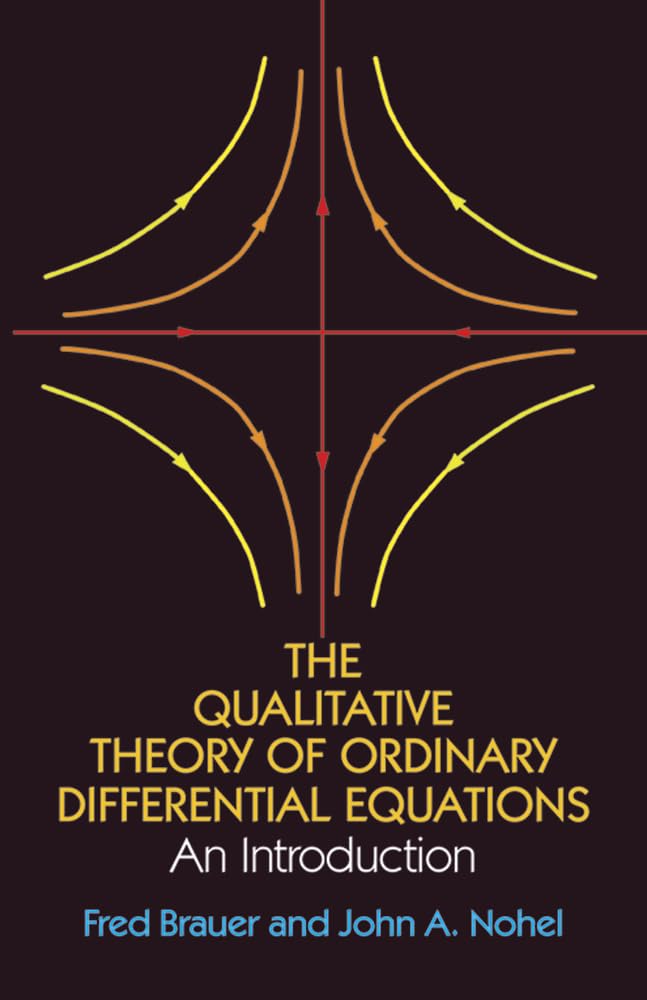The Qualitative Theory of Ordinary Differential Equations: An Introduction (Dover Books on Mathematics)
The Qualitative Theory of Ordinary Differential Equations: An Introduction (Dover Books on Mathematics) is backordered and will ship as soon as it is back in stock.
Couldn't load pickup availability
Genuine Products Guarantee
Genuine Products Guarantee
We guarantee 100% genuine products, and if proven otherwise, we will compensate you with 10 times the product's cost.
Delivery and Shipping
Delivery and Shipping
Products are generally ready for dispatch within 1 day and typically reach you in 3 to 5 days.
Book Details
-
Author: Fred Brauer
-
Brand: Dover
-
Edition: New
-
Binding: Paperback
-
Number of Pages: 320
-
Release Date: 01-02-1989
-
EAN: 9780486658469
-
Package Dimensions: 8.5 x 5.5 x 0.7 inches
-
Languages: English
About The Book
This highly regarded text provides a self-contained introduction to key concepts in the modern qualitative theory for ordinary differential equations. It's tailored for students in physical sciences, mathematics, and engineering with a solid understanding of calculus and linear algebra. The book covers essential topics such as theorems on linear systems, existence and uniqueness of solutions, and dependence on parameters. It then delves into stability theory and its applications, including oscillation phenomena, self-excited oscillations, and the Lurie regulator problem. One of its notable features is the abundant exercises interspersed throughout the text, aiding students in grasping the material through routine computations, extensions of theorems, and physical problem applications. Suitable for undergraduate students (juniors or first-year graduate students), this book is also ideal for a one-semester undergraduate course in ordinary differential equations or as a resource for engineers studying state-space methods.





